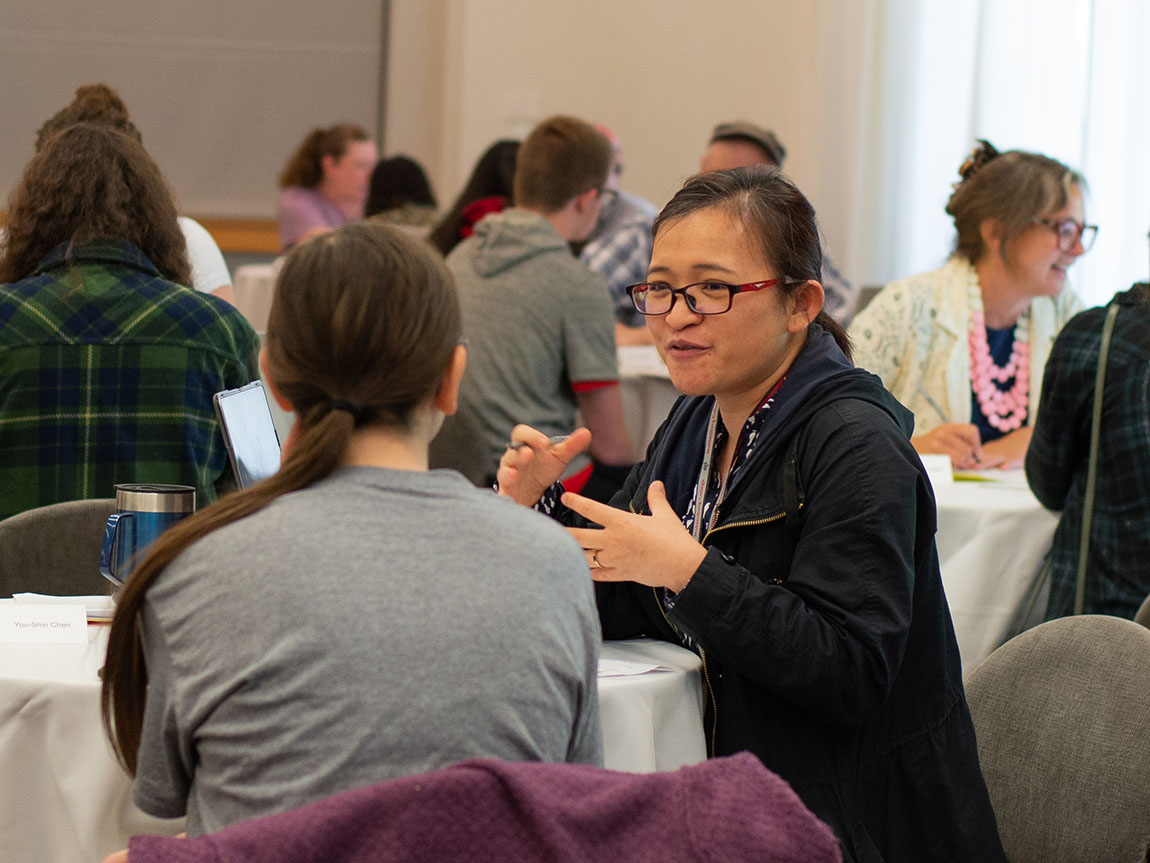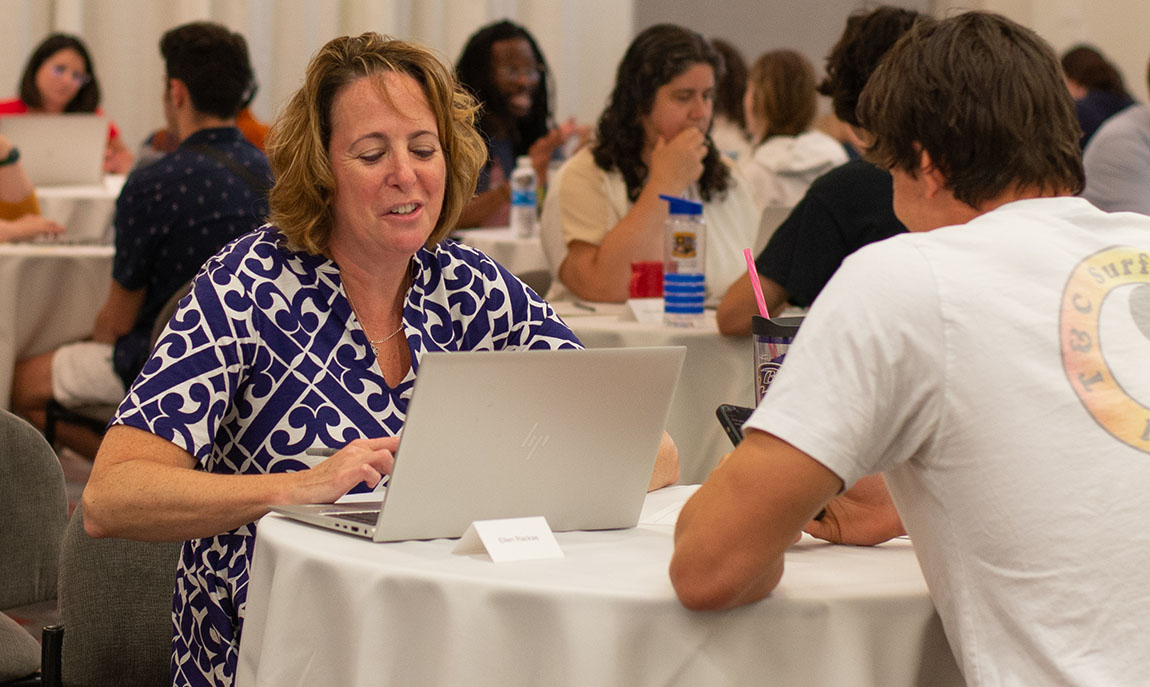New Curriculum Fosters Complex Problem Solving, Requires Experiential Learning
What does it take to lead in a dynamic, global society? Muhlenberg faculty answer the question with the adoption of a new academic curriculum that mandates more hands-on learning and complex, cross-disciplinary problem solving.By: Meghan Kita Thursday, January 11, 2024 11:00 AM
 Assistant Professor of Scenic Design You-Shin Chen speaks with a student during Summer Advising. Photos by Lizard Foley '24
Assistant Professor of Scenic Design You-Shin Chen speaks with a student during Summer Advising. Photos by Lizard Foley '24While Muhlenberg students have always studied abroad, completed internships and conducted research and community-engaged scholarship, experiential learning opportunities like these will be part of the core curriculum starting with this fall’s entering class.
That’s because evidence supports a relationship between experiential learning and improved learning outcomes, GPAs, retention rates and graduation rates. Evidence also indicates that employers are looking for graduates who’ve had these types of experiences. The hands-on learning is only one part of the requirement, says Provost Laura Furge — the other part is written reflection, which is required throughout the experience.
“We are responding to a new generation of learners in a global economy. We came out of the emergency phase of a global pandemic, and our expectations for learning — how we’re going to learn, what we’re going to learn — have changed.”
“One of the important things that liberal arts colleges can provide, and that we are now very intentionally doing, is taking time to think about what you’re learning and why. That time and reflection is how you get better,” Furge says. It’s like when a sports team huddles after a competition to talk about what went well and what didn’t: “We also provide that on the academic side of the house for the same exact reasons, because we want each person to become the best that they can be.”
In addition to the expanded role of experiential learning, the new curriculum is distinctive because it does away with core requirements based on discipline and introduces a core centered around content areas. Previously, students had to take a certain number of humanities courses, a certain number of STEM courses and so on. This fall, each content area in the core — including Humans, Histories and Social Structures and Meaning and Value, to name two — will be able to be satisfied by courses across multiple disciplines.

“Complex problem solving, real-world problem solving, involves thinking about problems from multiple perspectives using the language of multiple disciplines,” Furge says. “We want our graduates to be thinking artists, ethical accountants, scientists who understand moral questions in the work that they’re doing, health-care providers who understand the diversity of the human experience, business professionals who also understand how teams can innovate by not being siloed in their thinking. We think this curriculum helps to accomplish that.”
In their first years at Muhlenberg, students will explore broadly through the core content areas, learning to think across academic disciplines while also beginning studies in their chosen field(s). As students progress, they will apply their knowledge in increasingly focused ways, completing integrative and experiential learning, writing-intensive and capstone requirements.
“Student feedback on the experience they were having and the experience they would like to have helped drive [the curricular changes].”
Two of the core content areas, Race and Power in the American Experience and Global Perspectives, were specifically designed and included to prepare students to engage meaningfully with difference and issues of social justice locally and globally. The curriculum also adds optional microcredentials, which are three-course combinations that, together, build a durable liberal arts skill. The microcredentials are still in development, Furge says, but may include areas such as modern languages, digital tools, informational literacy, data analysis and medical humanities.
This significantly changed curriculum foregrounds existing areas of strength that landed the College on rankings lists that prioritize return on investment and outcomes (such as those from The Wall Street Journal and Washington Monthly). It also reflects a significantly changed world and the needs of students who have lived through that upheaval. The College conducted focus groups with students, and “student feedback on the experience they were having and the experience they would like to have helped drive” the curricular changes, Furge says.
“We are responding to a new generation of learners in a global economy,” she adds. “We came out of the emergency phase of a global pandemic, and our expectations for learning — how we’re going to learn, what we’re going to learn — have changed. We’ve also entered the age of artificial intelligence, increased social and political polarization and attacks on democracy, and we want our graduates to be most relevantly prepared to enter into careers where they can innovate and lead in effective ways.”
